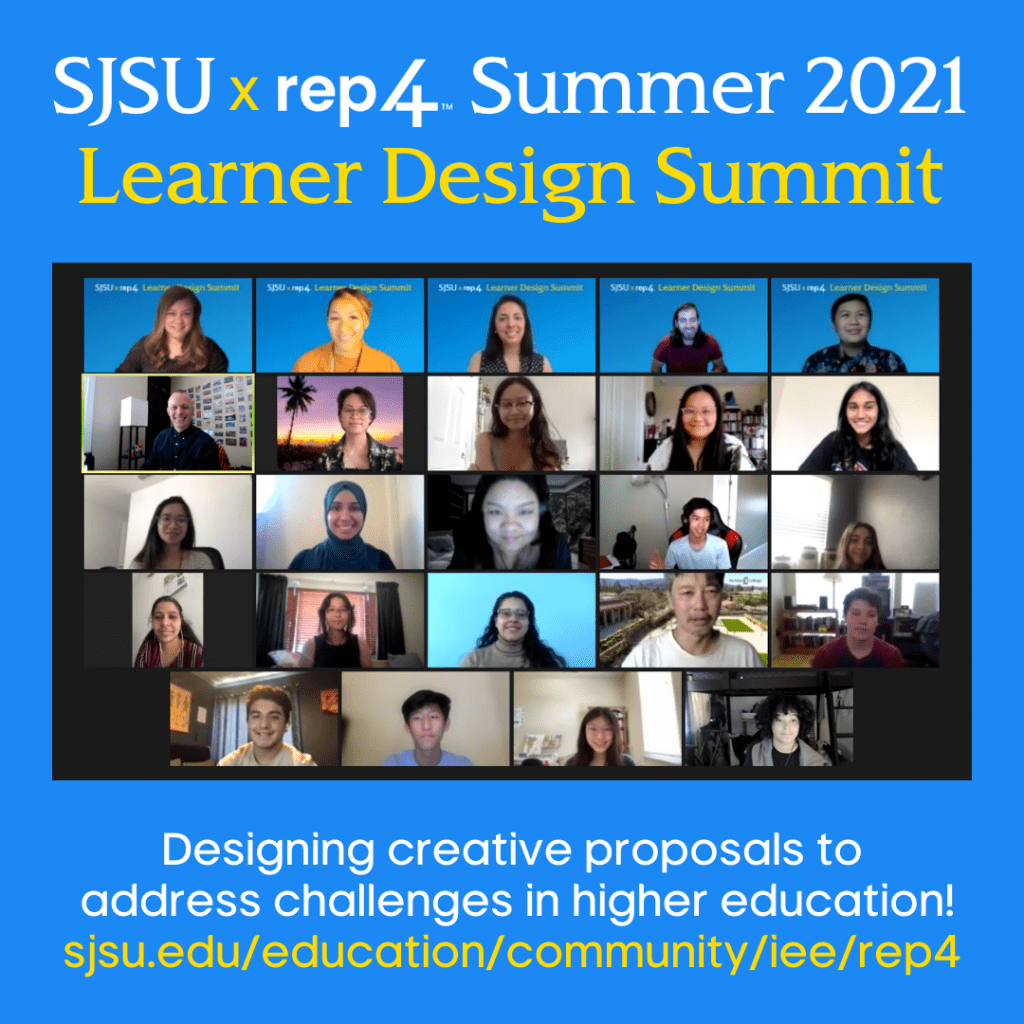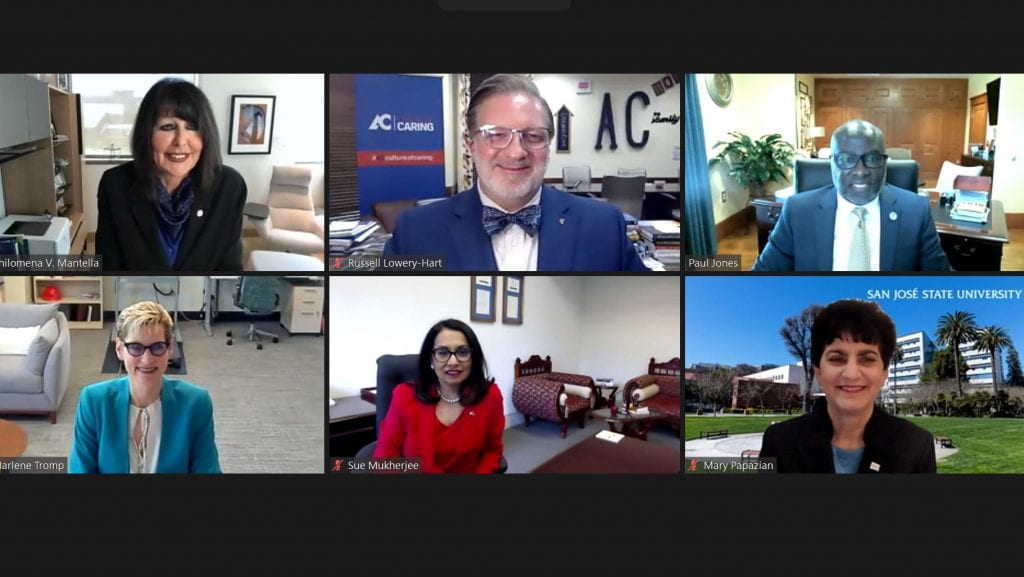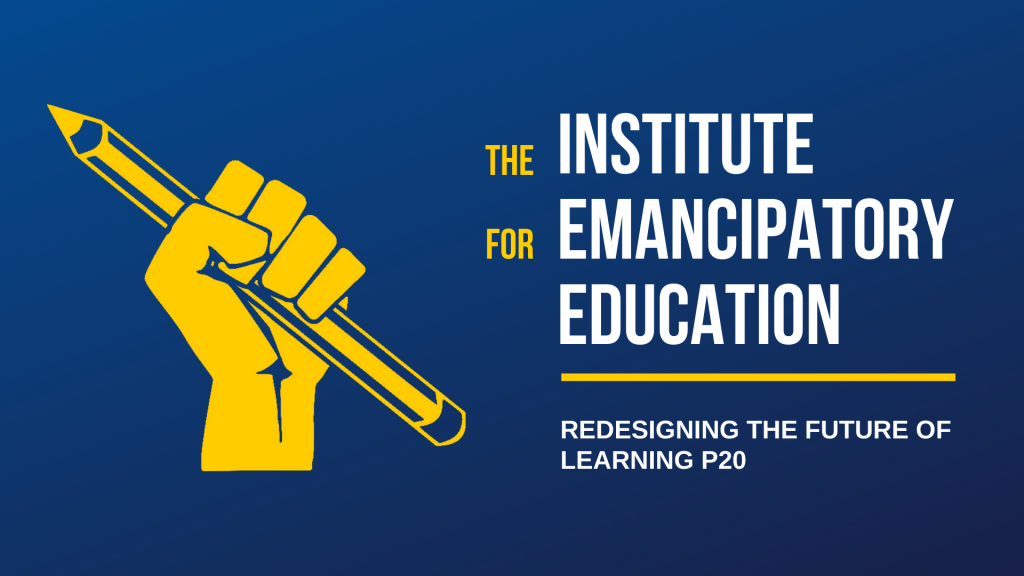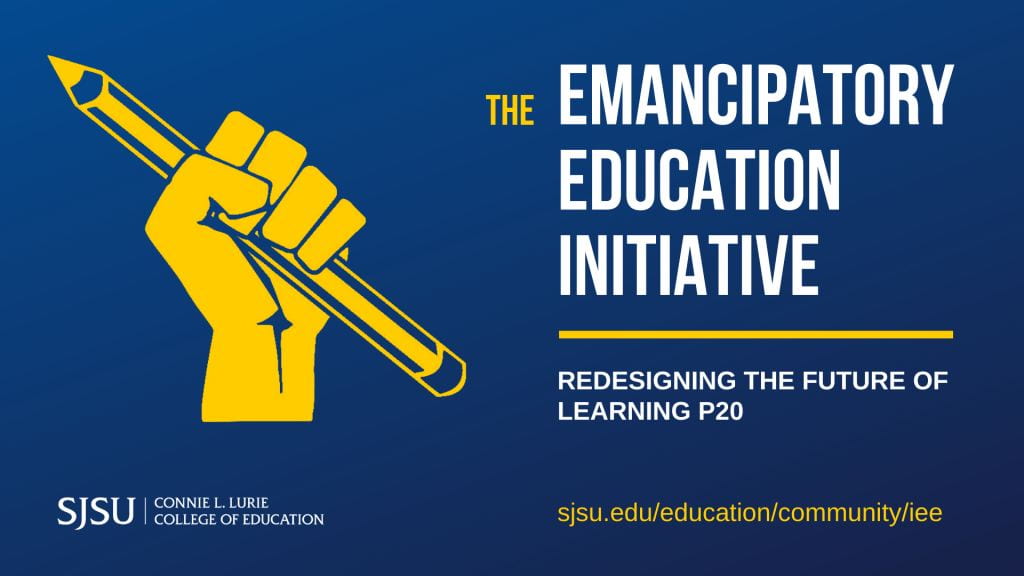
How do you design inclusive models for teaching and learning? It’s simple: Ask the students.
Last week, the Lurie College held its first Learner Design Summit to launch SJSU’s regional Rapid Education Prototyping (REP4) Alliance.
The REP4 Alliance is a powerful network of regional and national education, industry and technology leaders, led by the six founding higher education partners, including the Lurie College. This alliance brings together diverse learners to develop new ideas for higher education programming using liberatory design principles.
At the summit, a total of 25 local students, including rising 11th and 12th graders, recent high school graduates, community college students and SJSU undergraduates collaborated and designed creative proposals, or “prototypes,” to address existing challenges in the higher education system.
“A prototype is a pitch that students prepare to showcase the needs and solutions that create institutional change,” said Rebeca Burciaga, professor of educational leadership and Chicana and Chicano Studies as well as the faculty executive director of SJSU’s Institute of Emancipatory Education (IEE).
“SJSU student mentors are leading what we call ‘dream teams’ to dream up these ideas. We hope to find ways to incorporate their solutions and perhaps work with campus leaders to make those immediate changes.”
San José State President Mary Papazian kicked off the weeklong event with a message for the Spartan community.
“We believe that initiatives such as emancipatory education and REP4 support the development of equitable and inclusive educational systems that nurture the creativity and brilliance of all learners so that our diverse, democratic society can truly thrive,” she said.
“Collectively, the themes of this work are well-aligned with SJSU’s interests in advancing and transforming our educational systems, which many of us believe are in urgent need of radical change.”
Read the full story on by Julia Halprin Jackson on the SJSU Newsroom blog.


